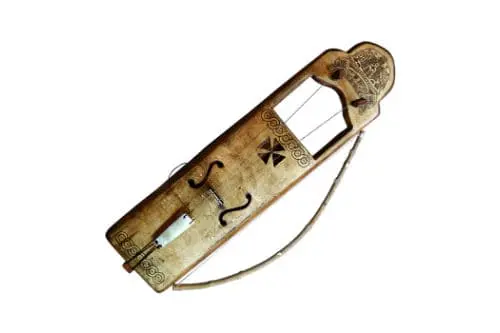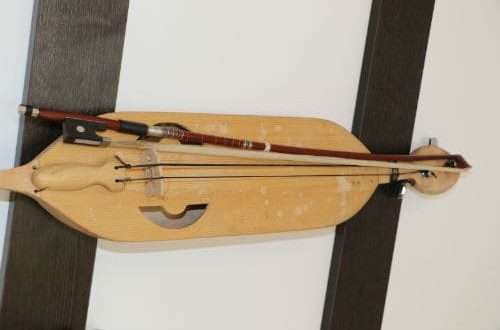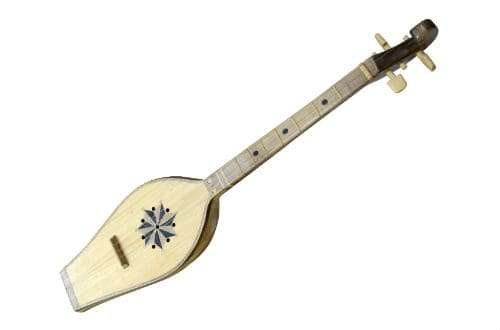
Jouhikko: description of the instrument, composition, history, use, playing technique
Jouhikko is a wooden bowed instrument, common in Finnish and Karelian cultures, used to perform folklore works. According to the classification, it belongs to chordophones. It has a fourth or fourth-quint system.
The musical instrument has a simple device:
- a wooden base in the form of a trough with a recess in the middle. The base is made of spruce, birch, pine;
- a wide neck located in the middle, having a cutout for the hand;
- strings in various quantities, from 2 to 4. Previously, horsehair, animal veins served as the material, modern models are equipped with metal or synthetic strings;
- arcuate bow.

Jouhikko was invented approximately in the 70th-80th centuries. The original name “youhikantele” was translated as “bowed kantele”. The use of this unique stringed instrument was interrupted for a long time, the tradition of playing was restored at the beginning of the XNUMXth century. The new life of the Karelian bow began in the XNUMX-XNUMXs of the last century: special centers were opened in Helsinki to teach the Play, the basics of making a national treasure.
A traditional Finnish instrument was used to play short dance melodies, less often as an accompaniment to songs. Today there are solo performers, also jouhikko is part of folk music groups.
While performing a melody, the musician sits, placing the structure on his knees, at a slight angle. The lower blade in this position rests against the inner surface of the right thigh, the lateral part of the body lies on the left thigh. With the back of the fingers of the left hand, inserted into the slot, the performer clamps the strings, extracting the sound. With the right hand they lead the strings with a bow. Harmonious sounds are extracted on the melodic string, bourdon sounds on the rest.





